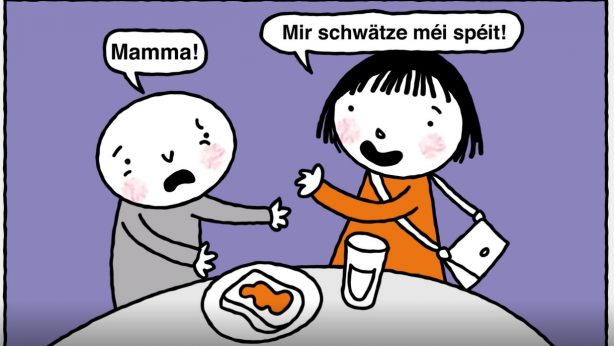My teenager doesn’t listen to me anymore!

Your son or daughter has changed: Your child now has his or her own interests, is in constant contact with his or her friends, expresses his or her opinions vehemently. Regular arguments and silence for days on end are not uncommon. Conversations together, on the other hand, are rather rare. Most of the time, your child sits at the table, head down, staring at his mobile phone, in contact with his friends. Well-meaning advice is not cool and is dismissed with “Oh Mom, Oh Dad”. Your teenager is not listening to you anymore.
Puberty means change. Although parents generally need good nerves during this time, it’s a relief to know: This is normal. At puberty, children no longer want to be ordered around. They question their parents’ values and norms and are looking for their own personality, their own way, their own world view. Your child develops his or her own identity, makes his or her own experiences, becomes more autonomous. This is part of the process of leaving the ‘family nest’.
How can parents reach their teenagers?
Always try to spot exactly when you can get your child’s attention. In these good moments, try not to talk too much and not to say anything superfluous. Avoid repetition and especially saying the same thing in the same way. The child will immediately take action. Think back to your own youth, how would you have liked to be spoken to back then? It is also useful to ‘knock on the door’ in advance, to ask if your child has time or when it is most convenient. Good times are also when no media interrupts your attention, for example when you are eating. If it is very difficult, make an appointment for a kind of “family council” where everyone has the opportunity to evaluate what is going well and what should be done differently. Here you can also ask directly: How can I talk to you so that you listen to me? It is usually important to talk at eye level!
Even if it is sometimes exhausting, many young people are very open to discussion. They want to speak out against the disadvantage, tackle injustices, find out the truth, learn new things. The way young people see the world can be very enriching for parents. Take an interest in what young people are interested in, even if you don’t have access to it yourself. Ask questions without judging, listen without taking sides, without giving answers to questions that are not asked. Both parents and children benefit from this exchange.
It should be an absolute taboo not to exploit these good times for interrogation. Young people need to know that it is possible to do something together without being questioned about school or any other permanent topic, so that they are more likely to want to do something together. Check your inner attitude: do you want to control or are you really interested? So questions like: “How do you like school? Are you having fun? are better than “How was school? Elisabeth Raffauf, a psychologist and author, says that “questioning, lecturing, blaming” – are the 3 red attitudes of the parent-child relationship. This is where children and teenagers disconnect. The 3 green attitudes, on the other hand, are: trust, being a role model and being understanding. Meet your child in a respectful way, with regard to his interests and also his friends.
Don’t be afraid of conflict. According to the education expert Winter, conflict is a relational task, because conflict means that feelings are present, that a relationship exists. In a conflict, you are facing another person and you are bound by emotions. In a conflict, your child wants to stay in a relationship with you and at the same time detach.
It is also helpful to reduce the expectation that you will not always be able to make the relationship the best it can be. There will be good times; but there will also be situations that will test you. On the one hand, you want to support your child and give him or her all the space he or she needs; on the other hand, you want to protect your child. You are experiencing inner conflicts. Letting go is not easy.
Even though it is not always so easy for parents, you can already trust young people from time to time. It can be useful to look at the good things, how children become independent, how they develop, how they make decisions in life, how they develop their talents.
In general, it’s fair to say that the puberty of one’s own children is always a challenge and sometimes worries parents; they feel challenged, sometimes overwhelmed. They want help and support – and that’s fine!
The Online Help offers advice, information and guidance – anonymously and confidentially. You are welcome here at any time. Specially trained counsellors can support and advise you, as well as refer you to the relevant counselling centres if necessary. It’s anonymous and confidential.



